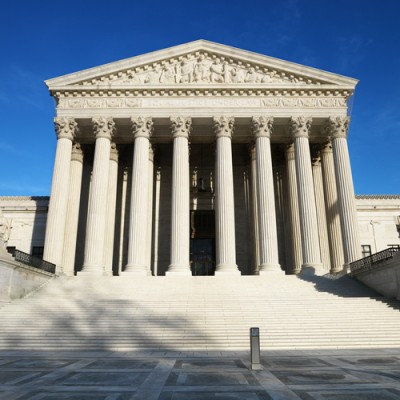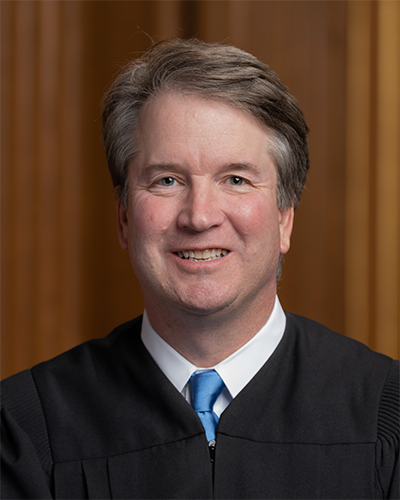Kavanaugh opinion overturns conviction of black defendant for racial bias in jury selection

Image from Shutterstock.com.
A black Mississippi inmate faces a possible seventh trial after the U.S. Supreme Court ruled 7-2 Friday that a prosecutor had displayed racial bias in jury selection.
Justice Brett M. Kavanaugh wrote the majority opinion finding a violation of Batson v. Kentucky, the 1986 decision barring the exclusion of jurors based on race.
Justice Clarence Thomas dissented in an opinion mostly joined by Justice Neil M. Gorsuch.
The Supreme Court decision in Flowers v. Mississippi reverses the conviction of Curtis Flowers, who was convicted of a 1996 quadruple murder at a furniture store. A prosecutor used peremptory challenges to exclude 41 out of 42 potential black jurors in Flowers’ first six trials.
Flowers’ convictions were overturned three times, twice for prosecutorial misconduct unrelated to jury selection. Two other trials ended in hung juries. In the sixth trial, the prosecutor accepted the first qualified black juror and struck five others. The Mississippi Supreme Court affirmed the conviction.
Kavanaugh said the exclusion of all but one black juror, in the latest trial and in all six trials, partly accounted for the reversal of Flowers’ conviction. He cited two other factors that also figured into the Supreme Court’s decision.
First, the prosecutor used a peremptory challenge to strike at least one black prospective juror at the sixth trial who was similarly situated to prospective white jurors who were not eliminated.
Second, the prosecutor in the sixth trial “engaged in dramatically disparate questioning of black and white prospective jurors,” apparently to find pretextual reasons to strike the black prospective jurors, Kavanaugh said.
Kavanaugh said the Supreme Court wasn’t breaking new ground in the case. “We simply enforce and reinforce Batson by applying it to the extraordinary facts of this case,” he wrote.
Thomas, usually quiet during oral arguments, surprised courtroom observers in March when he asked a question about the race of jurors eliminated by the defense.
Thomas’ dissent cited evidence tying Flowers to the July 1996 murders at a Winona, Mississippi, furniture store where he had recently been fired. Bullets used in the slayings were tied to a gun reported stolen from the car of Flowers’ uncle. A bloody footprint at the scene matched Flowers’ shoe style and size. Multiple witnesses saw Flowers in the vicinity of the store. Several hundred dollars were taken from the store’s cash drawer, and $235 was found in Flowers’ headboard.
Thomas said the Supreme Court never should have taken the case and suggested media attention could have figured into its decision to grant cert.
 U.S. Supreme Court Justice Brett M. Kavanaugh.
U.S. Supreme Court Justice Brett M. Kavanaugh.
Thomas said the prosecution had given legitimate race-neutral reasons for striking black jurors in the last trial who knew Flowers or his family members. The jurors struck by the prosecution “would have been stricken by any competent attorney,” Thomas wrote.
The majority “distorts our legal standards, ignores the record, and reflects utter disrespect for the careful analysis of the Mississippi courts,” Thomas said.
Gorsuch did not join sections of Thomas’ opinion in which Thomas criticized the Batson decision.
A statement by one of Flowers’ lawyers said the furniture store murders were a horrible crime, but Flowers did not commit them. They said a seventh trial “would be unprecedented, and completely unwarranted given both the flimsiness of the evidence against him and the long trail of misconduct that has kept him wrongfully incarcerated all these years.”
Hat tip to SCOTUSblog, the Washington Post and APM Reports, which had early coverage of the decision.



